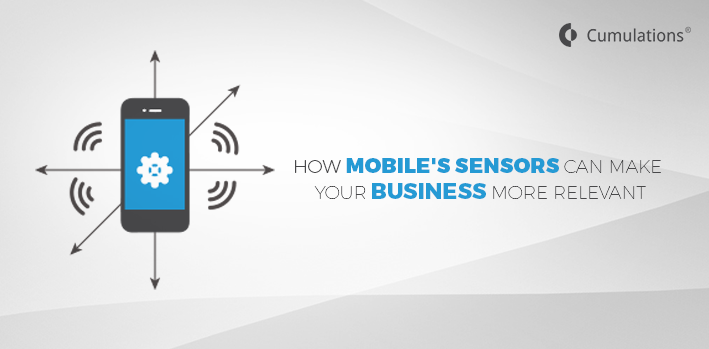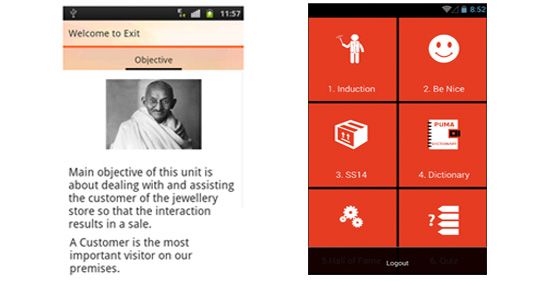
Mobile phones have now evolved to become “smart” phones not just because of the enhancement in the technology but also due to the sophisticated hardware. One of the major improvements incorporated in today’s smartphone is the use of sensors. We talk about Big data and Data analytics due to the availability of massive amount of information. Marketers now accumulate a huge amount of data. But how much of it is relevant and how much of it is of real value is of prime importance. There are smartphones, there are users, there is data on the internet,
there are smart devices all over- connecting all these is what matters today.
Mobile sensors and their applications:
The application of mobile sensors can improve day to day productivity as well as offer a lot of business benefits. Businesses can now make apps that create an impact by writing a code that taps the potential of the smartphone sensors. This also provides an ample scope for marketers to push relevant promotions.
1. Location based sensors:
Location based sensors, the GPS module embedded in smartphones have limitless
applications. This is one reason why most of the apps that you install might ask for
permission to access your phone GPS. Few examples:
• E-commerce applications can instantly update your current location and delivery address. This can help display relevant delivery information for each of the products.
• Hotel chains and food joints can provide location based recommendations. When you check-in to a mall or a new locality, you can be notified of the nearby outlets and their exact addresses.
• The auto industry is one that makes the most use of location based sensors. Android Auto, for example, is about seamlessly connecting your smartphone with your car. Bluetooth helps connect the smartphone to OBD device (on board diagnostics) on the car. This would help receive data about the car’s internal health and perform timely maintenance and repairs.
• Weather applications make use of location sensors to deliver live updates. The same also applies to News applications.
• Social media sites can make use of the location to notify you when your friends check in to a nearby area or when they are in the same city.
• Parking assistance apps are other examples of using location data. They help find a free parking spot in the vicinity and they also help find where you parked your car.
2. Fingerprint sensors:
Fingerprint sensor in a smartphone is not just another fancy addition. There can be functional and security benefits to including fingerprint sensors. Fingerprint data is something that cannot be replicated easily. Few examples:
• Now that majority of the payments are digital, mobile companies now allow the option to save credit and debit card information. Fingerprint authentication adds an additional level of encryption to secure financial data. Even the personal data on the smartphone can be secured with fingerprint authentication. No more password hassles.
• This one makes online transactions so much better. Some phones allow configuring a quick launch of applications with a fingerprint. This can also be used to perform various other operations and thus make the user experience simpler and quicker.
Businesses now understand the importance of maintaining the relevance of apps. Apps, to be intelligent, first have to be relevant. Other sensors like Bluetooth, accelerometer and gyroscope are all extensively embedded in today’s mobile applications. Using sensor data to make better mobile apps for businesses: Contextual data delivery and improvement of the awareness of devices is crucial. Both these characteristics can be incorporated in mobile apps by wisely making use of sensor data. Which sensors to use and how much of the sensor data to use is important. But this also means the availability of huge amounts of data. This also calls for data analysis and data security measures. The data would also have to be discreetly used. Customers should also be made aware of how much data is being collected and where exactly it is being used. With normal user interface, the customer knows exactly what he is sharing with the app. But the type of data being collected through sensors is not fully known to the customers. This is one fact that makes some users skeptical about sensor based applications. Transparency of the app data collection would help build credibility.
In this age of IoT, we now find smart devices, those with sensors all around us. To be able to establish automation and to monitor and control the smart devices with a smartphone businesses now understand the significance of mobile sensors and sensor data.


 +91-984-5825982 | +91-996-4689921
+91-984-5825982 | +91-996-4689921 sales@cumulations.com
sales@cumulations.com Send your requirement
Send your requirement 



